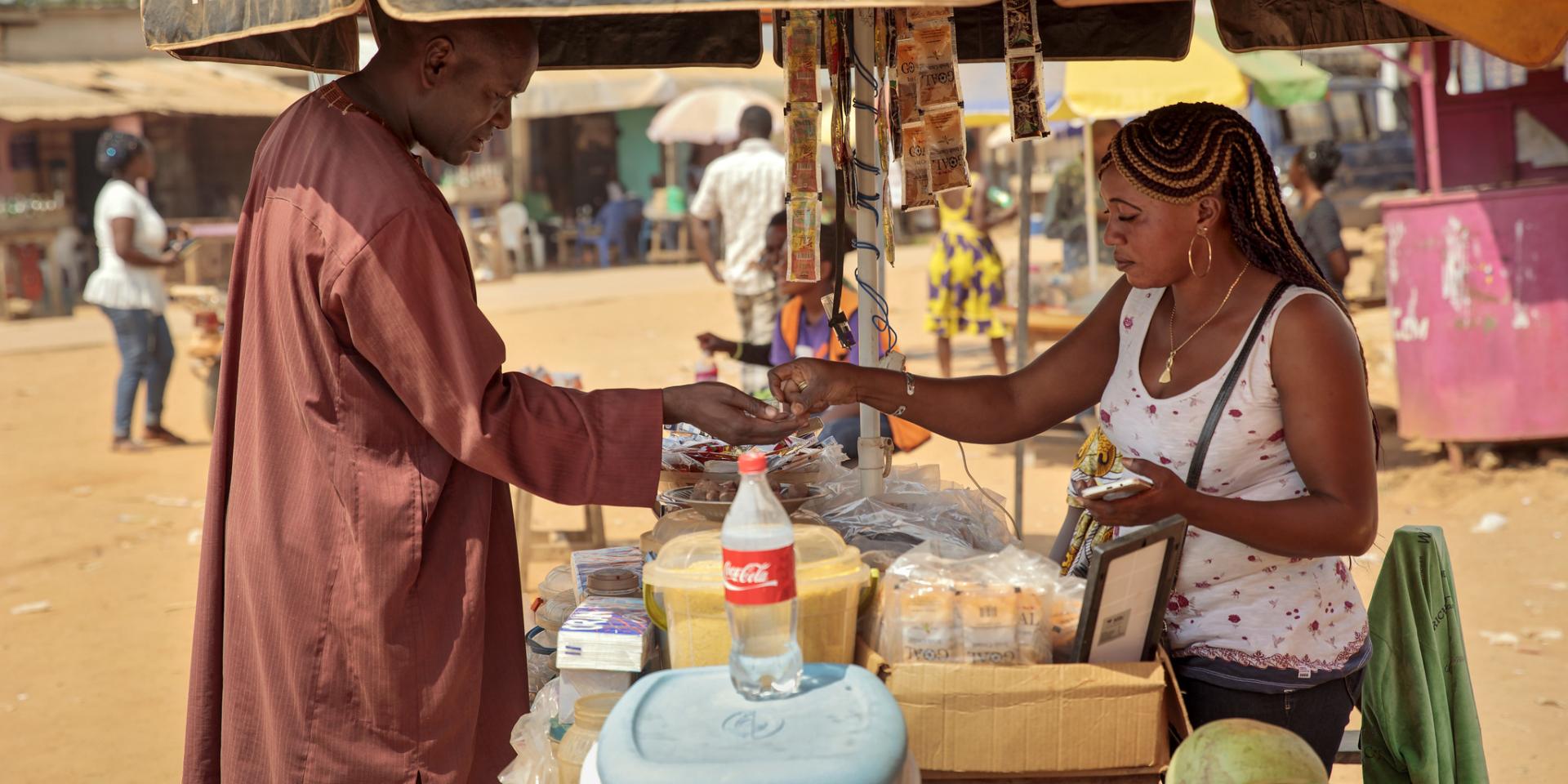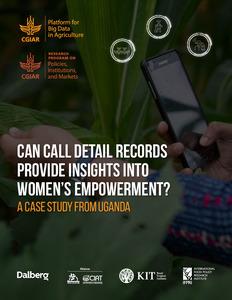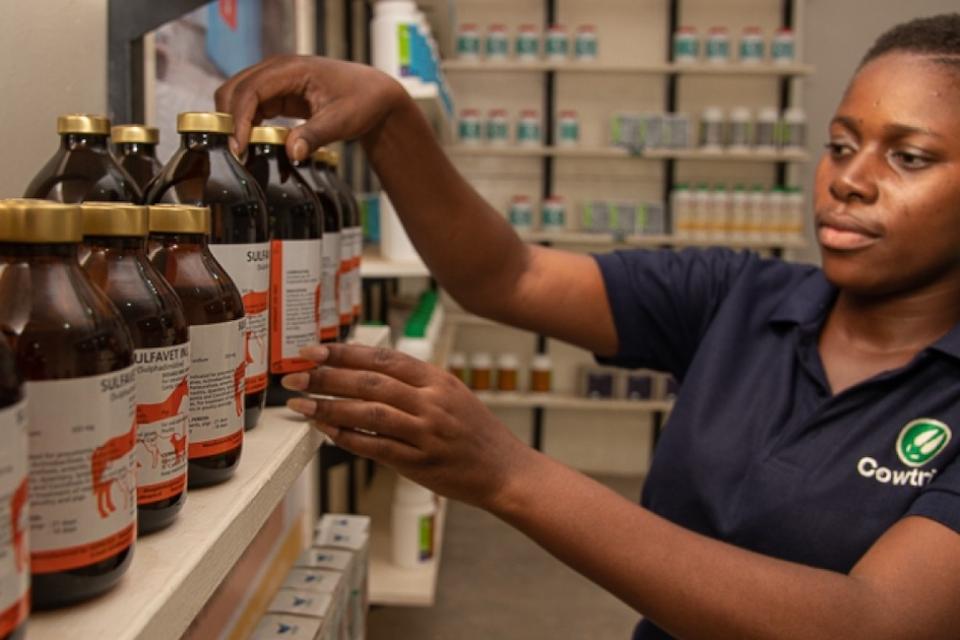Can mobile phone data predict women’s economic empowerment in Africa?
 Photo: UN Women
Photo: UN Women
How can we learn about women’s empowerment when large-scale survey data are not available? Big data generated from mobile phones can help fill in gender data gaps.
Call detail records (CDRs) -- which are produced whenever a mobile phone is used -- contain a wealth of information on users’ behavior. The number of different people a user calls may reveal something about users’ social networks, how frequently users purchase mobile minutes and/or data may correlate with socio-economic status, and the location of cell towers, through which phone calls are routed, provide insights into users’ mobility.
With the global rise in mobile phone usage, we are seeing more applications of CDRs in development research. They have been used to study poverty, human migration, the spread of epidemics, and disaster response. CDRs also show promise for understanding gender issues. Researchers have applied machine-learning techniques to CDRs to predict the sex of phone users and phone users’ socioeconomic status.
Inspired by these applications, we recently examined the feasibility of using CDRs to predict women’s and men’s economic empowerment. In the study, economic empowerment was proxied by indicators of employment status, ownership of assets (land and house), and decision-making about the use of household income (Table 1). The research reveals the substantial promise of this approach. Still, important limitations must be recognized. First, it is critical that CDRs are used ethically and respectfully of data privacy and security. Second, non-representativeness related to conducting analyses on a subsample of the population (mobile phone users) is an issue that deserves concerted attention.
Collecting ground-truth data
How did we go about predicting economic empowerment from CDRs?
We started by collecting ground-truth data through a phone survey with a random sample of subscribers of MTN Uganda, one of the largest mobile service providers in the country. A sample of 10,417 (3,946 women and 6,471 men) respondents was successfully interviewed. The phone survey included seven questions. Three of these focused on the economic empowerment indicators mentioned earlier – employment status, ownership of assets (land and house), and decision-making about use of household income (see Table 1 below for the exact questions).


